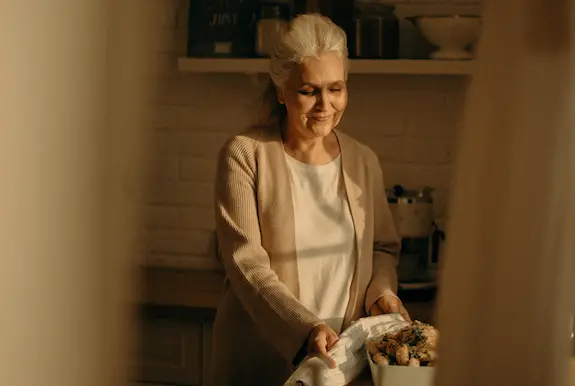Have you heard the phrase, “I want to go home” from your loved one or client regardless of them living in assisted living, memory care, your home or even the house they have lived in for years?
You are far from alone. This is something I’ve heard from thousands of dementia patients I have worked with over the years. If there was such thing as a universal thing folks with dementia could do, this may be it.
Highlights
1) The biggest common mistake most caregiver make when responding to this phrase, what “I want to go home”
2) What the phrase actually means
3) How you should respond so that your loved one or client’s unspoken needs get met.
The Biggest (and Most Common) Mistake
When your loved one or client says I want to go home, they don’t mean the physical place. That is why even if you got fed up enough to take them to the physical place that they would turn to you and say this isn’t home, “I want to go home”. The big mistake most people make is that they respond by saying, “you are home” or “this is your new home” if they are in assisted living or memory care.
What Your Loved One or Client Means by “I Want to Go Home”
What your loved one or client is actually trying to tell you when they say I want to go home is that they want the feelings of comfort, safety and familiarity that home represents. I’m going to break down what I mean by each of these needs that your loved one or client may be attempting to express to you.
The Comfort of Home
The comfort of home can mean physical comfort like the bathroom, their bed to sleep in or a shower or emotional comfort like missing a loved one or a comfort item. Asking “what is at home that you need” will help you figure out the need that is at the root of the phrase “I want to go home.
If they need a shower, are hungry or tired, they’ll be able to tell you about those things. If they are missing a love done, ask them about how they feel. Often times, our folks just need to get some feelings off their chest to feel better like the rest of us.
The Safety of Home
Safety means that they feel unsafe or threatened where they are and want the feeling of safety that home provides. Again, asking for what they need at home will help you figure out if some thing is making them feel unsafe. They may be having a hallucination or a delusion that is scaring them or simply doesn’t feel safe where they are.
Familiarity of Home
Familiarity means that they are looking for the specific people, places and things that they believe should be there since the world has suddenly turned unfamiliar. What is familiar to them will vary depend greatly on what time of their life they believe they are in.
It is common as more recent memories go away that our folks will in an effort to hold onto what is familiar to them start to identify with the memories they have. That is why you’ll see an 80 year old grandma believing she is in her 20’s with young kids or even believing she is a child herself.
While this is by far the most common reasons behind why folks with dementia will “want to go home”, the fix is harder than the others as you can’t provide them with the specific people, places and things that are familiar to them so easily.
What I’ve seen work the most often is going along with their reality, validating the person and assured them that things are being taken care of or that they will see their loved ones soon.
Conclusion
The phrase “I want to go home” doesn’t actually mean a physical place like it does for us. I want to go home means they want:
1) The Comfort of Home
2) The Safety of Home
3) The Familiarity of Home
What you can do is ask “What do you need at home”, get them what they need or go with their reality as best you can if you can’t.



